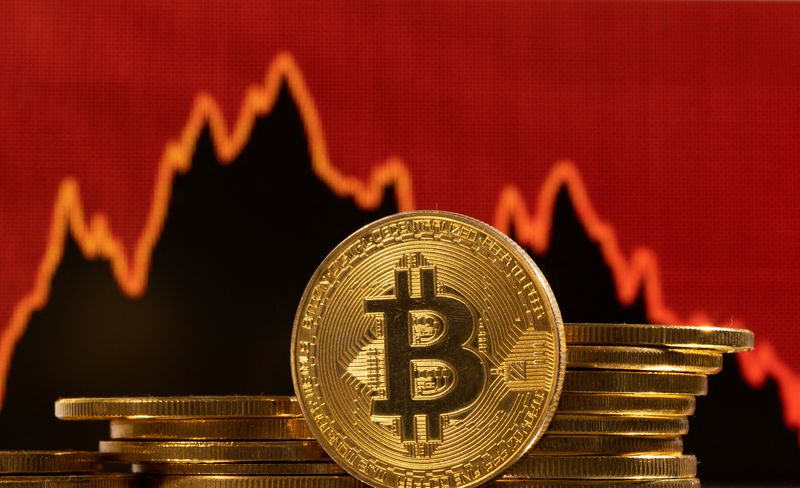Bitcoin's price continued its decline on Thursday, as selling pressure from Bitcoin mining operators, Mt. Gox refunds, and actions from the German state of Saxony continued. However, a crypto expert told Investing.com that the ongoing downtrend could be “a bear trap.”
Why Bitcoin price is in a downtrend
The defunct Mt. Gox exchange remains a key issue for the world’s largest cryptocurrency, with the exchange’s trustees recently starting to refund tokens to clients affected by a 2014 hack. The exact amount of this distribution is unclear, but wallets linked to the exchange moved about $9 billion worth of tokens earlier this year.
Moreover, the German government has been offloading Bitcoin confiscated from a piracy website, potentially holding at least $2 billion worth of tokens.
The sharp decline in Bitcoin price has raised concerns that major Bitcoin miners might start selling some of their holdings to break even, particularly after Bitcoin’s halving earlier this year reduced miner rewards.
These factors have weighed on BTC significantly in the recent period, shaving roughly 15% of its value over the past month.
Crypto expert weighs in
Bitcoin is currently trading above the $58,000 mark, having bounced from last week's low of $53,600. The cryptocurrency remains in a technical downtrend from March's record high of $73,800, with consecutive lower highs at $71,300 and $63,900.
Eugene Cheung, head of institutions at Bybit, said that while optimism remains for the medium-term outlook, the cryptocurrency market is not immune to abrupt macro events that could significantly affect global market sentiments. However, Cheung notes that the $57,000 support level has so far helped hold Bitcoin price, pointing to the resilience of the market and limiting further declines.
“If the price can climb back above the 200-day moving average quickly, this recent decline could be considered a bear trap, and a rally higher could be expected,” Cheung told Investing.com.
Historically, market corrections have acted as healthy resets within ongoing bull markets, aligning with well-established trends. Cheung notes that there has been a decline in trading activity and crypto prices on centralized exchanges for nearly two months following the halving event in previous Bitcoin cycles, a pattern that has repeated in the current cycle.
“The market cycles can last 12 to 18 months after Bitcoin halving before producing a new cycle top,” he said. “Despite common fears that "this time is different," the cyclical nature of markets often sees history not repeating but certainly rhyming.”
Meanwhile, recent data from on-chain and market data analytics firm CryptoQuant offers a different perspective, suggesting that a major Bitcoin price correction or the onset of a sustained bear market could be imminent, as the profit and loss index hovers around its 365-day moving average. Previous crossovers to the downside preceded significant declines in May and November 2021.
CryptoQuant's bitcoin bull-bear market cycle indicator is also nearing a critical level that indicates a potential descent into a bear market.
